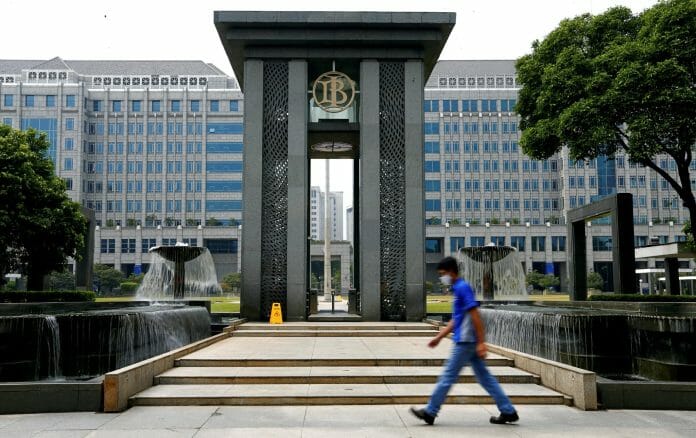Indonesia’s central bank left its benchmark interest rate unchanged for a fourth straight month to support a still vulnerable currency.
Bank Indonesia’s decision to keep the BI-Rate at 6% on Wednesday was predicted by all 30 economists surveyed by Bloomberg. Governor Perry Warjiyo and his board have left the rate steady since November as they approach monetary easing with caution, given implications for the rupiah — whose stability is a key priority for BI.
The rupiah should remain stable and appreciate further, supported by the bank’s continued sale of rupiah and dollar securities that can bring in inflows, Warjiyo told reporters.
Even though risks from election uncertainty have mostly passed, the monetary authority still needs to keep a watchful eye on the currency. The rupiah has remained volatile as investors pulled back bets for an early Federal Reserve rate cut after strong US employment and inflation data this month.
Domestic inflation at 2.57% in January is, however, well within Bank Indonesia’s 1.5%-3.5% target range for this year. The core gauge, which is closely watched by the central bank, is also at a two-year low of 1.68%.
It also remains to be seen how smooth the transition of power will be as President Joko Widodo’s term comes to an end in October. Official election results by next month will likely show incumbent Defense Minister Prabowo Subianto won the election, with Gibran Rakabuming Raka, Jokowi’s eldest son, as his running mate.
With the global economic slowdown likely to drag exports down further, Bank Indonesia may increasingly count on market tools — both rupiah and FX securities — to attract foreign funds and ensure currency stability.
The central bank has been keeping its macroprudential policy loose to help push lending and sustain economic growth. The authority sees recovery prospects intact, as it retained its growth estimate for 2024 at 4.7%-5.5%.
Bank lending grew at 11.83% in January, Warjiyo said, in what’s the fastest pace in over a year. Banks have also started shifting their liquidity away from securities and toward lending to their sectors of expertise, he said. – Bloomberg









